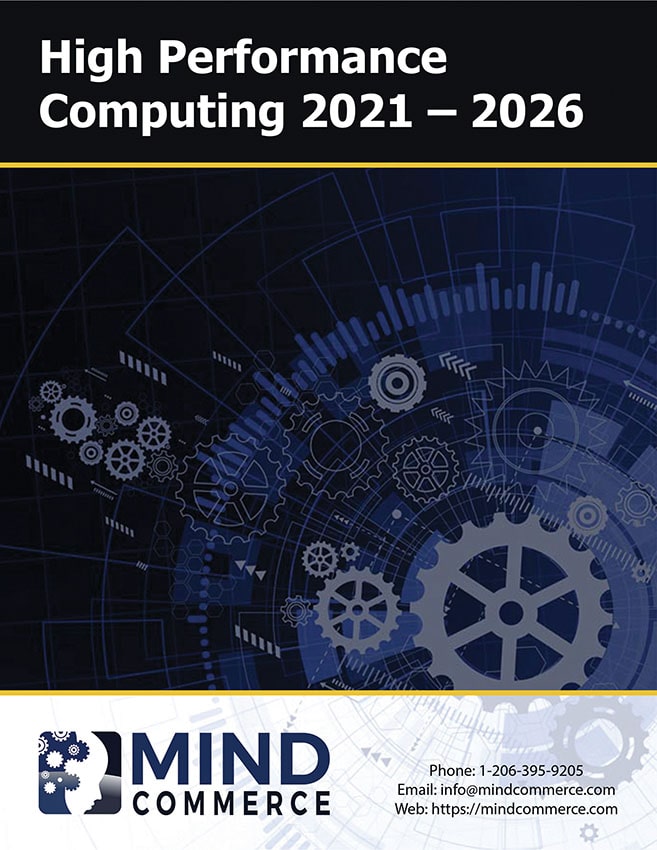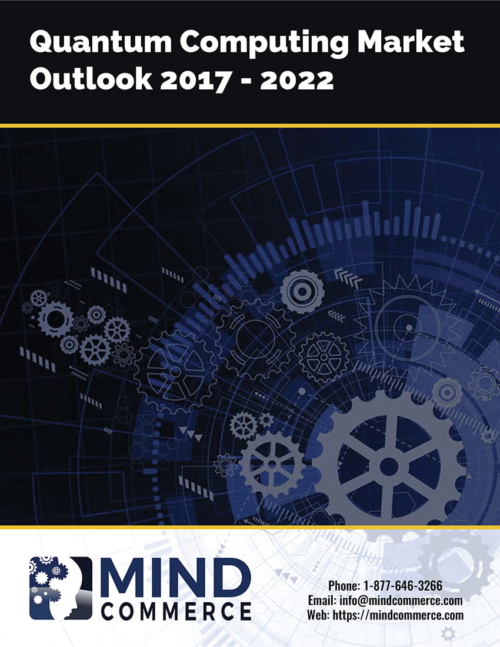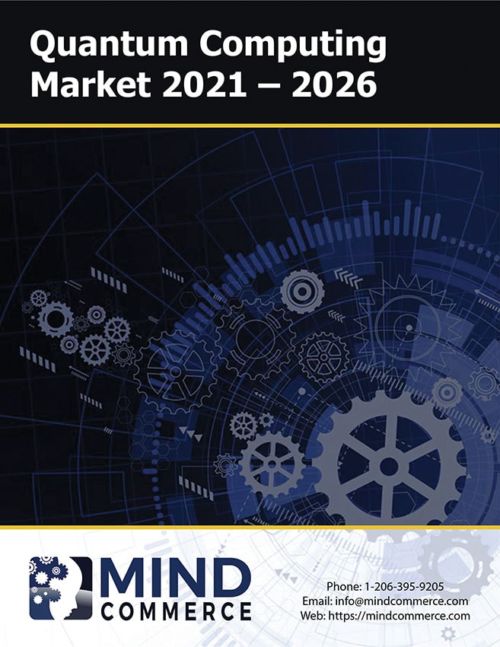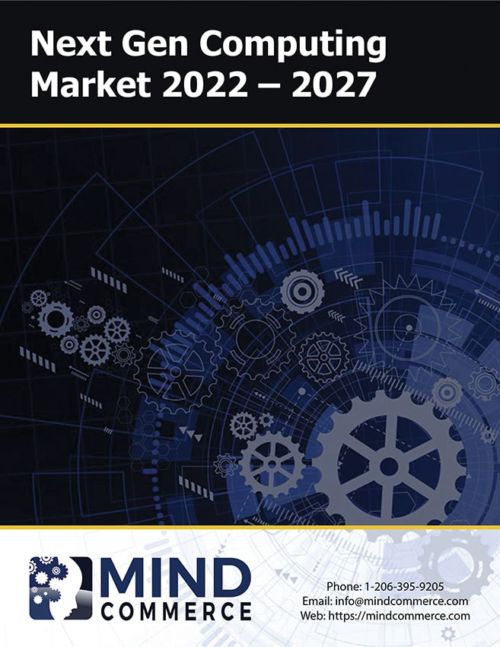Description
The high performance computing market includes computation solutions provided either by supercomputer or via parallel processing techniques such as leveraging clusters of computers to aggregate computing power. HPC is well-suited for applications that require high performance data computation and analysis such as high frequency trading, autonomous vehicles, genomics-based personalized medicine, computer-aided design, deep learning, and more. Specific examples include computational fluid dynamics, simulation, modeling, and seismic tomography.
High Performance Computing Market Dynamics
No longer solely the realm of supercomputers, the high performance computing market is increasingly provided via cluster computing. By way of example, Hewlett Packard Enterprise (HPE) provides a computational clustering solution in conjunction with Intel that represents HPC Infrastructure as a Service (IaaS). This particular HPC IaaS offering environment provides customized tenant clusters tailored to client and application requirements. Key to this particular solution is the intelligent use of APIs, which enable a high degree of flexibility and what HPE refers to as Dynamic Fabric Configuration.
High Performance Computing Market Solutions in the Cloud
The high performance computing market provides capabilities that are often used to solve very specific problems for large institutions. Examples include financial services organizations, government R&D facilities, universities research, etc. However, the cloud-computing based “as a Service” model allows HPC market offerings to be extended via HPC-as-a-Service (HPCaaS) to a much wider range of industry verticals and companies, thereby providing computational services to solve a much broader array of problems. Industry use cases are increasingly emerging that benefit from HPC-level computing, many of which benefit from split processing between localized device/platform and HPCaaS.
Mind Commerce sees emerging opportunities in the high performance computing market for wireless carriers as they deploy multi access edge computing (MEC). Network operators will have the opportunity to cluster MEC nodes to achieve HPC capabilities. This will be especially helpful to handle the anticipated high volume of IoT transactions as well as computationally intensive needs of many 5G based applications. This represents a HPC market opportunity for communication service providers to offer HPCaaS to their enterprise and industrial customers.
High Performance Computing Market at Exascale
Exascale-level computing the high performance computing market to a level of computing in the range of quintillion calculations per second. It will be very important for certain consumer-oriented applications and services. For example, exascale-level processing will be a critical component for processing data from millions of self-driving vehicles as part of an intelligent transportation system that optimizes traffic flow and utilization of vehicular resources.
Exascale-level HPC market computing refers to computing systems capable of calculating at least 1018 floating point operations per second (1 exaFLOPS). While achieving this level of computing is a daunting task, leading companies are diligently working to reach this milestone. For example, HPE Cray supercomputers are being built with expected exascale capabilities, designed to solve increasingly difficult problems.
This level of HPC is well-suited for applications that require high performance data analysis such as high frequency trading, autonomous vehicles, and genomics-based personalized medicine, computer-aided design, and deep learning. Specific examples include computational fluid dynamics, advanced simulations, complex system modeling, and advanced imaging analysis such as seismic tomography. Most of the initial applications will be large corporation and government driven.
High Performance Computing Market in Industry Verticals
The HPC market will positively impacting many different industry verticals including healthcare, engineering, finance, smart cities and space research. The examples discussed below are only the tip of the iceberg as Mind Commerce sees the high performance computing market ultimately relied upon by virtually every computationally heavy business.
In healthcare, computers that store confidential patient information, track vitals and medical data, and analyze drug efficacy, can incorporate HPC market solutions to streamline the process. By way of example, the Living Heart Project involves researchers at the University of Stanford in which HPC is used to create a virtual human heart. This digital model allows researchers to test cardiovascular functions and implications of new drugs and surgical procedures.
At the University of Texas at Austin, researchers use HPC to test for correlations between a patient’s genome and their condition. At the Rady Children’s Institute for Genetic Medicine, researchers are utilizing HPC market solutions to sequence the human genome. Using HPC, a newborn’s genome can be sequenced in under a day using Edico Genome’s proprietary DRAGEN processor. This technology allows for the potential diagnosis of previously undiagnosed, deemed critically ill newborns.
In engineering, HPC market solutions are being leverages to test prototypes in massive computer simulations. Testing virtually not only saves money but increases efficiency and accuracy. Simulations like these have been used in streamline racing bikes and to test airplane parts for functionality. At Boeing, high performance computing market solutions allowed the company to safely reduce the weight of the 787 by over 200 pounds, saving the organization more than $200 million.
The U.S. DOE utilized HPE in its “SuperTruck” initiative to invent truck add-ons aimed at increasing fuel economy. Using HPC market solutions, researchers realized that adding skirts to long-haul trucks would minimize airflow, increasing fuel efficiency and saving up to $5,000 worth of fuel yearly. Trek uses Rescale’s high performance computing market approach to optimize the aerodynamics of its bikes. With this technology, Trek can run real-time simulations including testing drafting formations in biking.
In the world of finance, HPC has become almost required for cryptocurrency mining, as the calculations to solve a single Bitcoin become increasingly more difficult as miners approach the upper limit of 26 million coins. Bitcoin miners have compiled their hardware, creating their own multi-core HPC market solutions setups.
The use of HPC in urban planning can lead to better modeling and decision making. In smart cities, sensor networks collect massive amounts of data, and HPC market solutions are needed to process to obtain meaningful insights. For example, Chicago’s “Array of Things Project” uses sensors to track macro issues of climate and infrastructure, collecting data on light, pressure, traffic, temperature, and more. The amount of data generated from this project requires HPC for processing.
In space research, POLARBEAR uses HPC solutions to analyze massive amounts of data in real-time. This data comes from the universe’s Cosmic Microwave Background in an attempt to dissect the current state of the universe and decipher its origins. NASA relies upon HPC market solutions to predict solar flares before they occur. Researchers have taught a deep-learning algorithm to predict flares based on photos, allowing the agency to substantially more accurately than with previous models.
High Performance Computing Market vs. Quantum Computing
The high performance computing market is currently associated with classical computing. While quantum computing does not utilize a faster clock-speed than classical computing, it is much faster than traditional computing infrastructure for solving certain problems as quantum computers can handle exponentially larger data sets. Accordingly, quantum computing is well-positioned to support certain industry verticals and solve certain problems such as cybersecurity and cryptocurrencies that rely upon prime factoring. Current classical computing technologies would take an inordinate amount of time to break-down prime factors to support cryptology and blockchain technology.
Due to the limitations of quantum computing, and the evolution of the HPC market, Mind Commerce sees a future in which hybrid systems utilize both quantum and classical CPUs on the same computing platform. These next generation computing systems will provide the best of both worlds – high speed general purpose computing combined with use case specific ultra-performance for certain tasks that will remain outside the range of binary computation for the foreseeable future.
Mind Commerce sees a future of quantum and classical CPUs on the same computing platform, which will lead to a combined general purpose and use case specific computation solution that will solve many industry problems in a more scalable and economic manner. This will profoundly transform the high performance computing market as general purpose classical, and purpose-built quantum, merge in a highly synergistic manner.
High Performance Computing Market Report
This report evaluates the HPC market including companies, solutions, use cases, and applications. Analysis includes HPC by organizational size, software and system type, server type and price band, and industry verticals. The report also assesses opportunities within the high performance computing market for integration of various artificial intelligence technologies in HPC.
It also evaluates the exascale-level HPC market including analysis by component, hardware type, service type, and industry vertical. The report provides HPC market sizing by component, hardware type, service type, and industry vertical from 2021 to 2026. It also evaluates the exascale computing market including analysis by component, hardware type, service type, and industry vertical.
Click Here for more Mind Commerce Computing Reports






